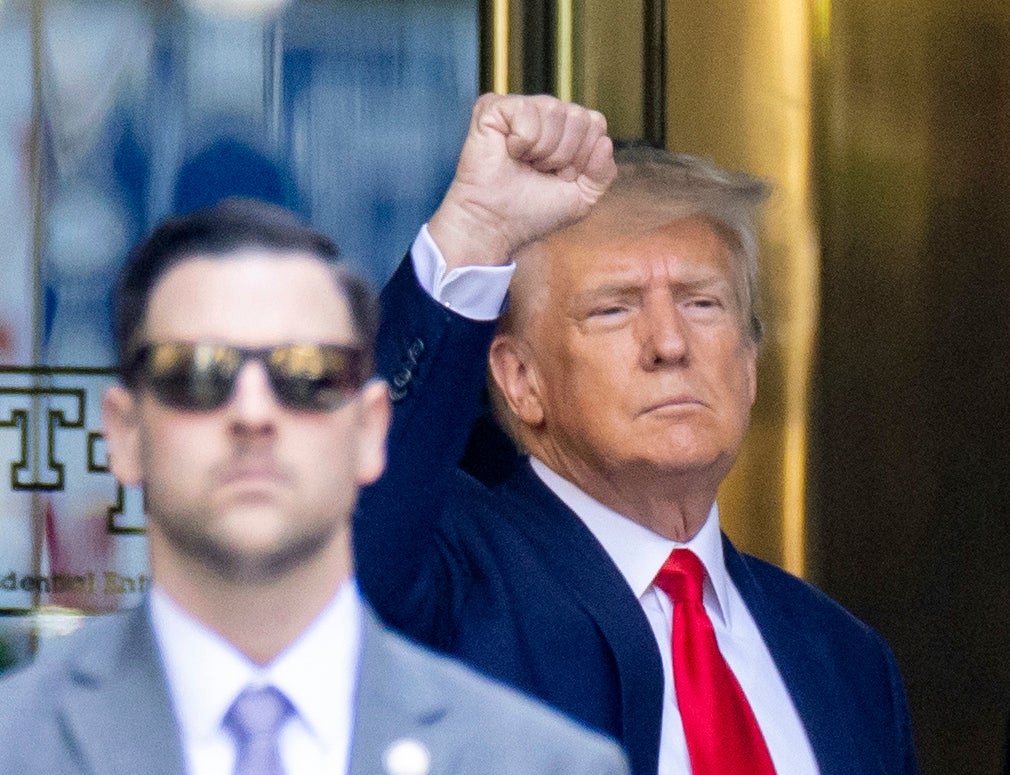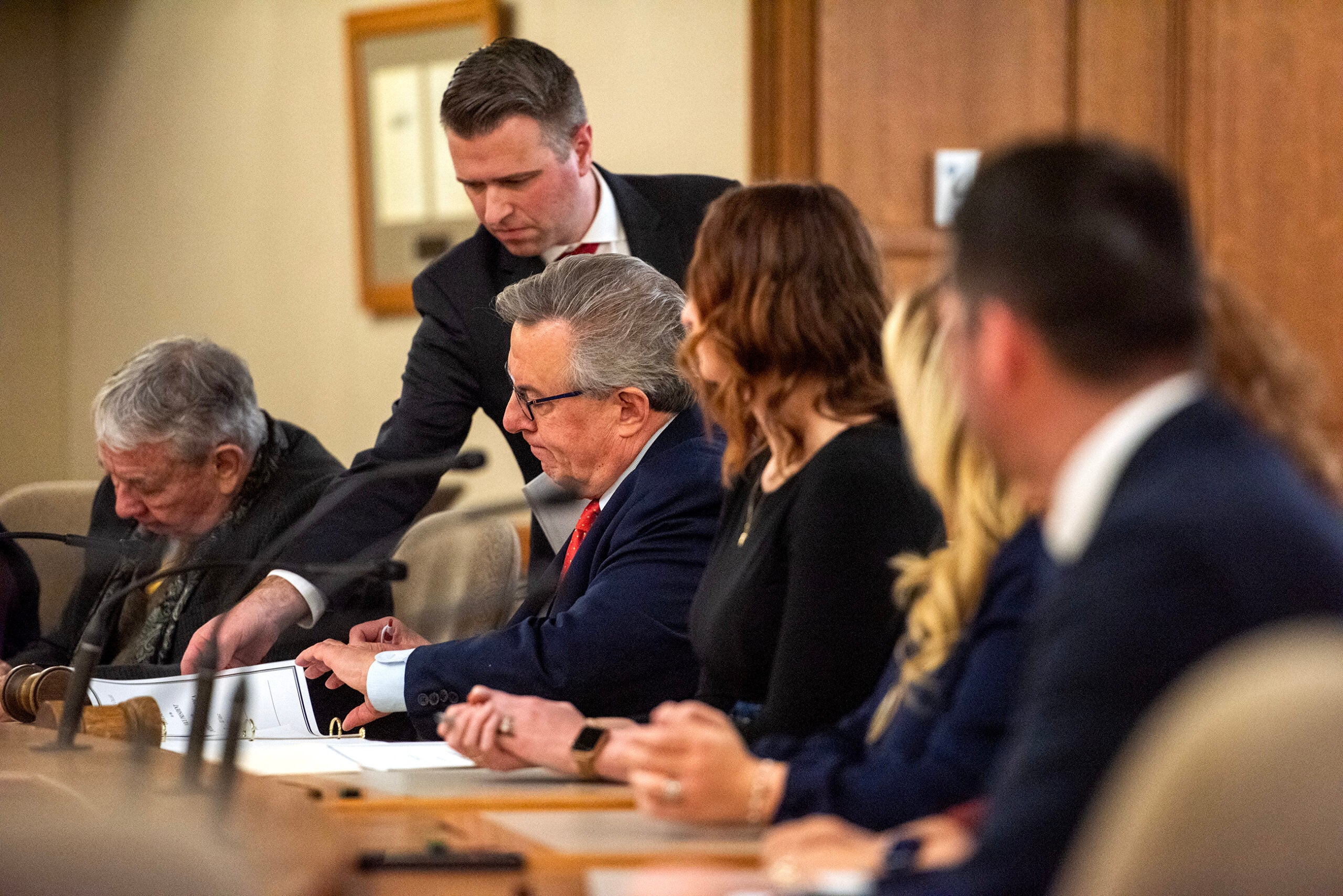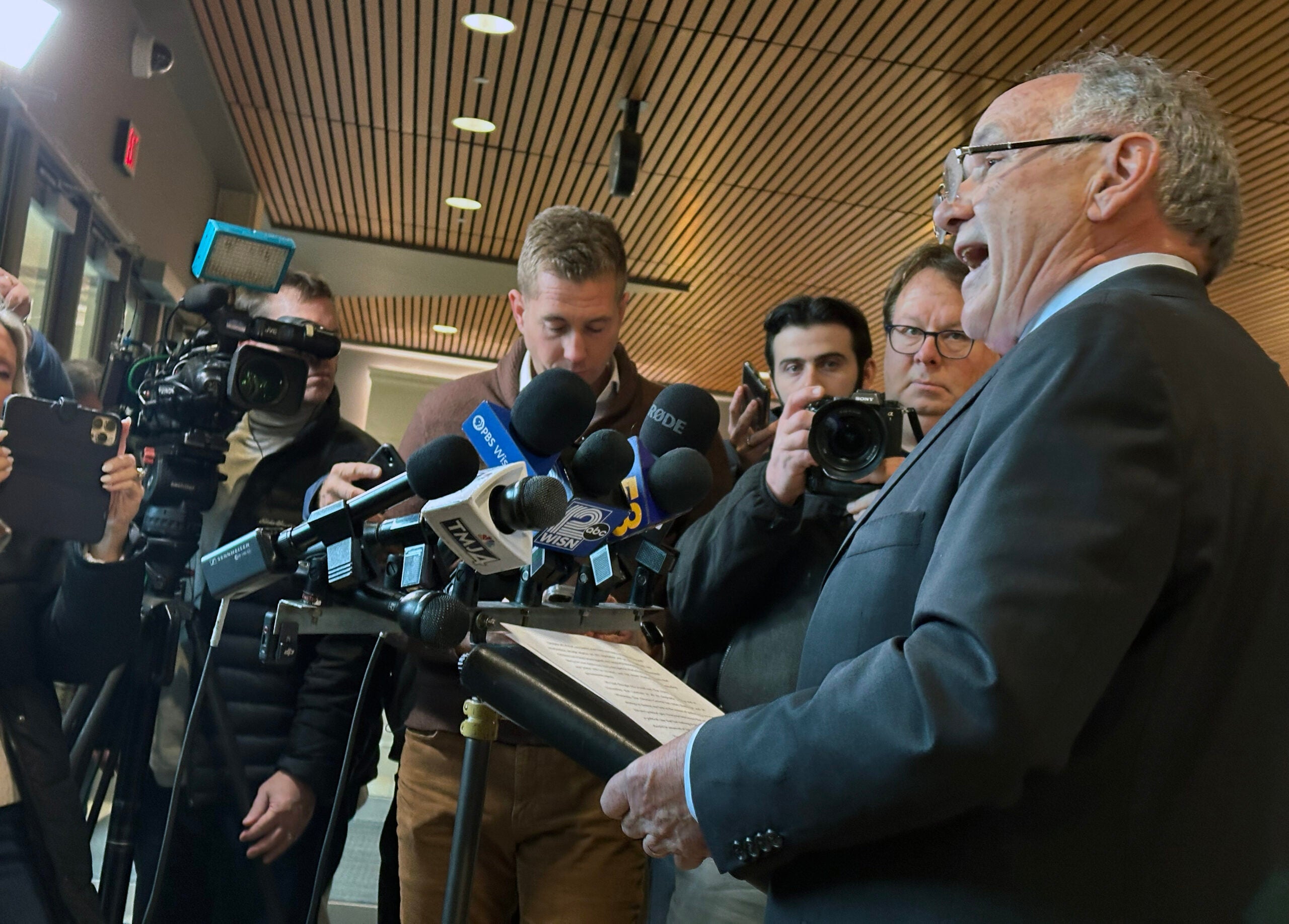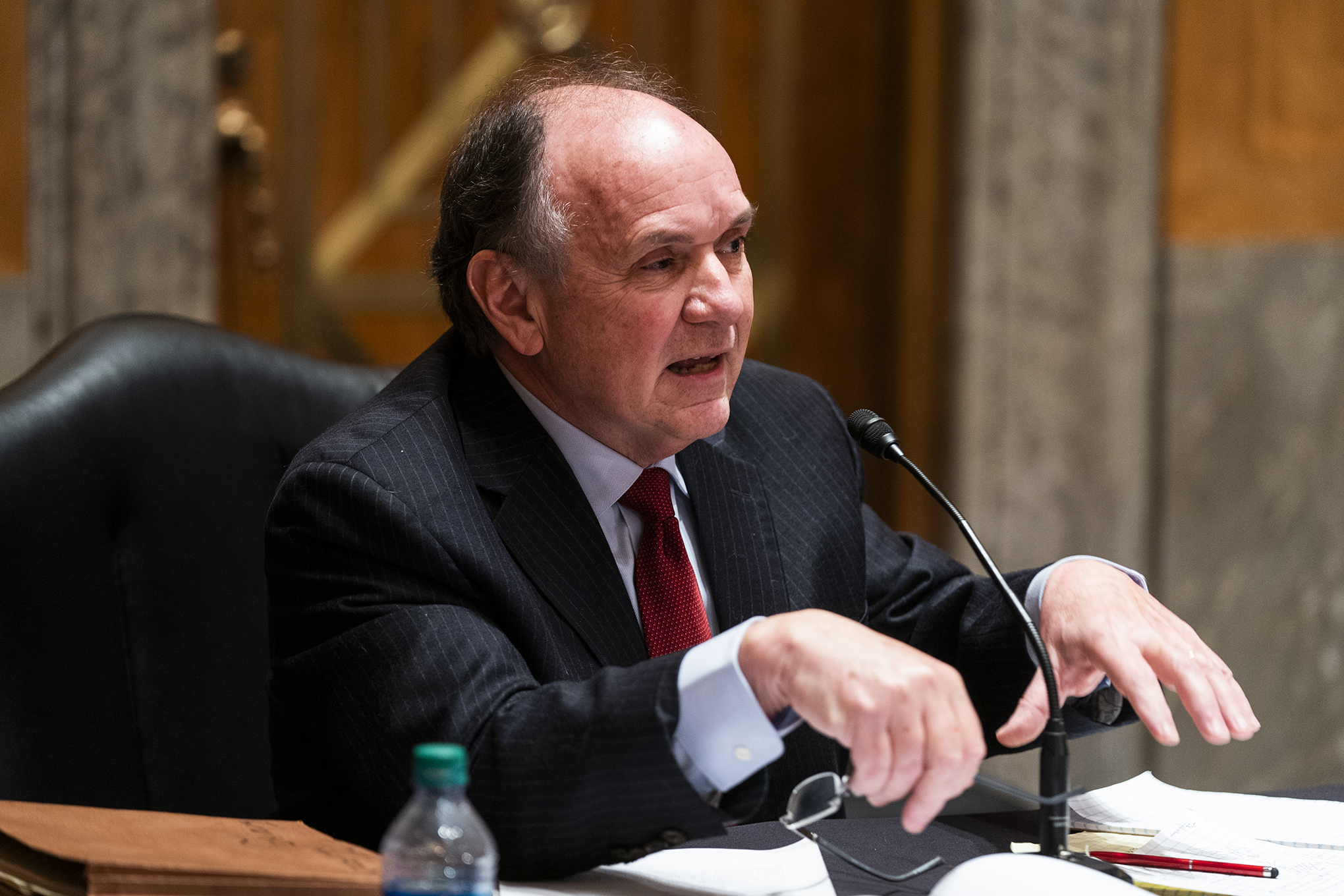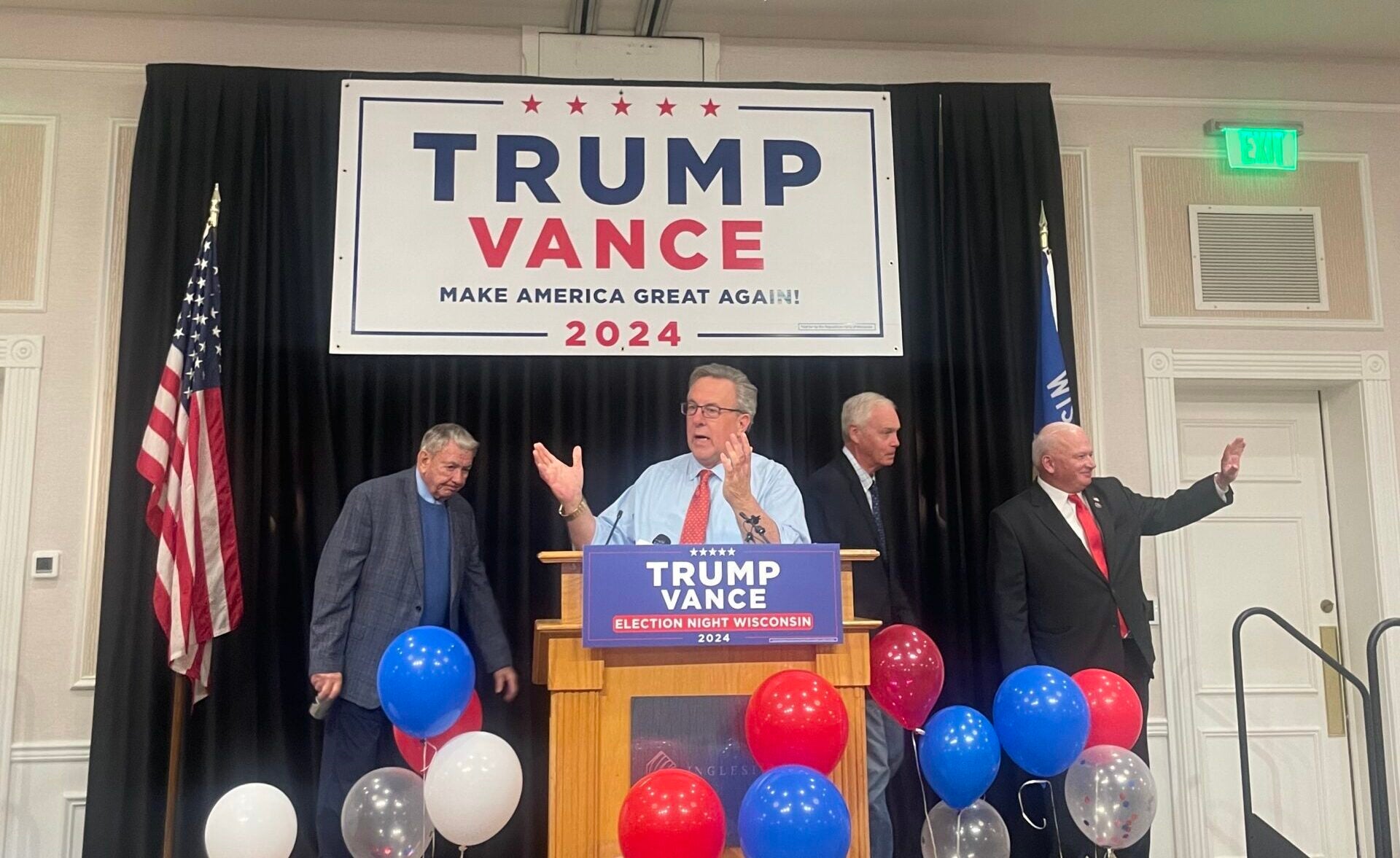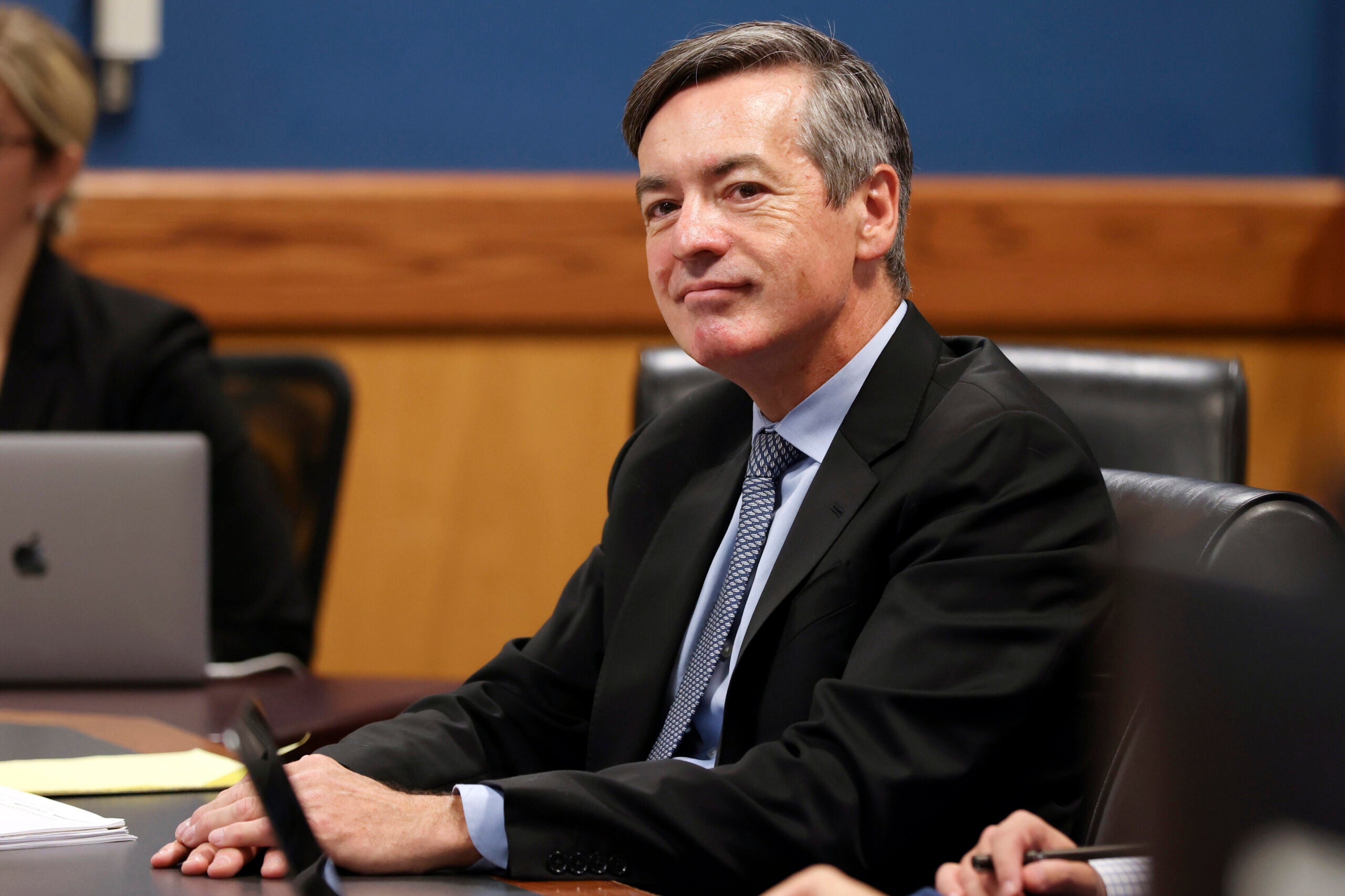The chair of the Wisconsin Republican Party is mentioned by name in the latest indictment of former President Donald Trump because of a meeting he held with two allies now charged with conspiracy.
Trump’s latest criminal indictment was delivered Monday night in Atlanta. The former president and 18 others have been charged with conspiracy and racketeering, among other crimes, for allegedly attempting to overturn the outcome of the 2020 presidential election in the state of Georgia.
The sweeping, 98-page indictment refers to a meeting between two of those charged — Kenneth Chesebro and Rudy Giuliani — and Brian Schimming, who is now the chair of the Wisconsin GOP, to allegedly discuss selecting alternate Trump electors in Wisconsin.
Stay informed on the latest news
Sign up for WPR’s email newsletter.
“These were overt acts in furtherance of the conspiracy,” the indictment says of the December 2020 meeting, and of the subsequent meeting of Wisconsin’s false electors.

In a statement, Schimming — who was not the state GOP chair at the time — said that Wisconsin Republicans created the slate of false electors so that they would be ready if Wisconsin’s election results were tossed out.
“Republican electors met in accordance with state statutory guidelines, on the advice of attorneys, and with precedent, to preserve all legal options still pending before the courts,” he said. “Had the courts ruled differently, the alternate electors would have been needed.”
Wisconsin was one of several swing states where President Joe Biden won the 2020 presidential outcome by a slim margin. Trump and his allies repeatedly challenged the outcome in such states, claiming without evidence that widespread fraud had taken place. Multiple lawsuits challenging Wisconsin’s results, in both state and federal courts, were either thrown out or ruled in favor of a Biden victory.
Biden won Wisconsin by 20,682 votes, a fact that was affirmed by recounts in the Democratic bastions of Milwaukee and Dane counties and a nonpartisan audit.
In a legal strategy engineered in part by Chesebro — a lawyer who has been named as a co-conspirator in a federal case against Trump — Trump allies in seven swing states, including Wisconsin, developed their own slates of Trump electors that would replace those legally elected in support of Biden, according to Constitutional rules governing the electoral college.
According to the Georgia indictment, Chesebro and Schimming met to discuss the electors plan on Dec. 12, 2020, while Giuliani – the former New York City mayor and Trump’s personal attorney – joined remotely.
Two days later, on December 14, 10 Republican electors met at the state Capitol to cast false electoral votes for Trump, the same day Wisconsin’s actual electors cast their votes for Biden. They later tried to have those votes handed to then-Vice President Mike Pence on Jan. 6, 2021. Republicans in six other swing states took similar actions.
Former GOP chair Andrew Hitt, who served as one of the false electors, previously told a U.S. House committee that “[t]he Wisconsin Electors were simply following the guidance of Wisconsin legal counsel to preserve the ongoing Wisconsin legal strategy.”
At the time that the false electors scheme was unveiled, Hitt also texted a colleague that Trump’s advisors were “up to no good”, according to records released by a U.S. House committee that investigated the deadly Jan. 6 riots at the U.S. Capitol.
In a memo authored by Chesebro and obtained by the New York Times, Chesebro laid out in detail how Wisconsin’s false electors could be physically present on January 6 – the Constitutionally mandated day on which Congress counts and confirms presidential electors – in case court challenges swung the state in Trump’s favor.
Chesebro advised Trump allies to message the development of such a slate as “routine,” and also suggested that following a similar strategy in other swing states could force the election before the Supreme Court.
“Letting matters play out this way would guarantee that public attention would be riveted on the evidence of electoral abuses by the Democrats, and would also buy the Trump campaign more time to win litigation that would deprive Biden of electoral votes and/or add to Trump’s column,” Chesebro wrote.
In the Georgia indictment, Chesebro faces seven charges for his coordination of the alternate elector plan.
Elsewhere, the Michigan attorney general has brought felony charges against false electors in that state. Wisconsin’s attorney general, Josh Kaul, has declined to say whether he’s investigating Wisconsin’s slate. His office did not immediately respond to a WPR request for comment about the Georgia indictment.
The Wisconsin false electors are being sued in Dane County Circuit Court for their actions. And the use of false electors is also part of a federal criminal investigation by U.S. Special Counsel Jack Smith into the Jan. 6 insurrection and other efforts to overturn the 2020 election. Multiple Wisconsin election officials have been interviewed by federal investigations as part of that probe.
Gov. Tony Evers has called for Wisconsin’s false electors to be “held accountable” for their work.
“What those ten fake electors did was wrong. People have to be held accountable for that, and I hope to hell somebody does,” he tweeted last week.
A spokesperson for the governor did not immediately respond to a WPR request for comment.
Wisconsin Public Radio, © Copyright 2025, Board of Regents of the University of Wisconsin System and Wisconsin Educational Communications Board.
